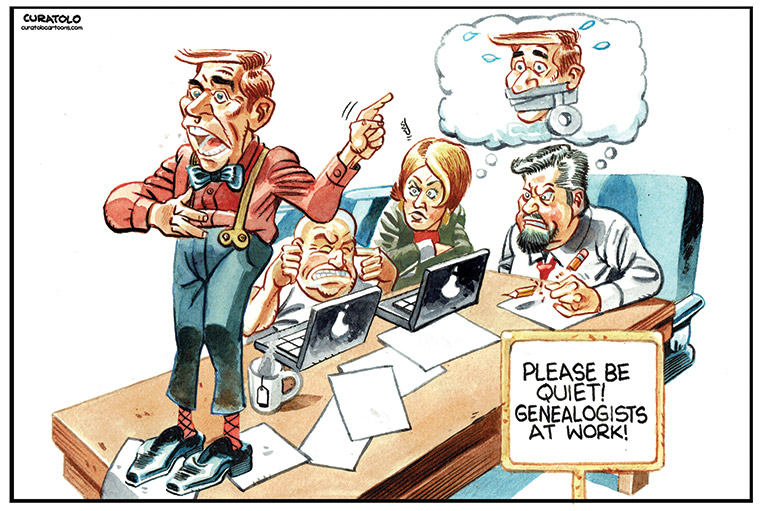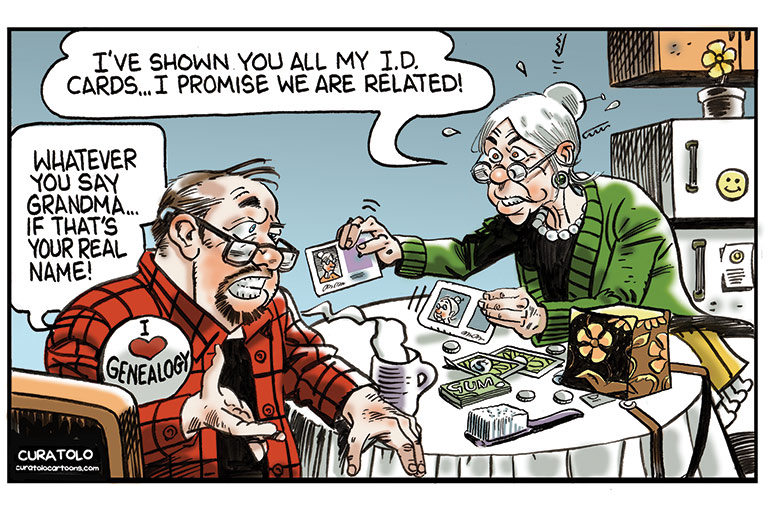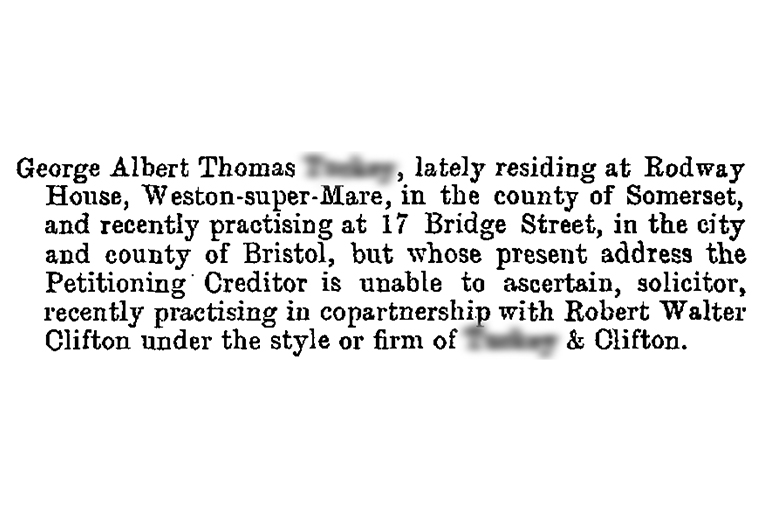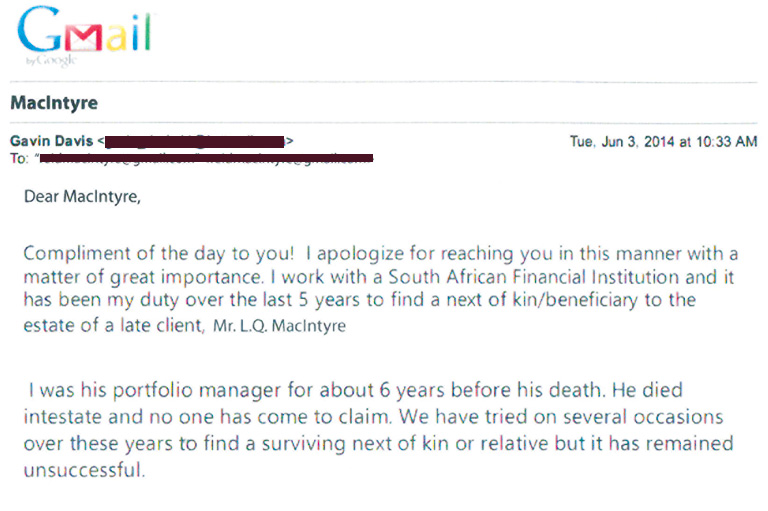Roots: Online Etiquette

Whether you’re a family-history research newbie who needs a hint to get started or a seasoned veteran with an intractable problem, you can seek advice in online genealogy forums. These can be dedicated to specific surnames, places, or heritage organizations, and Facebook groups are a particularly popular example.
Some groups are choosy about who can participate — only members of a specific family or heritage society, for example. Fortunately, many have a broader mandate and will happily admit you, provided you’re not a bot or a spammer. Once you’ve joined a forum, you can post questions, and other members will use their expertise to try to help you find answers — and vice-versa. Even so, you may find you quickly wear out your welcome if you display too many of the following behaviours.
Not doing your homework. Here’s a surefire way to lose goodwill with group members: Ask a question that anyone can quickly answer via Google. For example, it’s perfectly acceptable not to know the enumeration date of the seventh census of Canada in 1931, but why should others do the searching for you? (By the way, it was June 1.)
Babbling on. People are busy. They don’t have the patience to wade through a thousand words of tortured prose dealing with five generations of ancestors and posing half a dozen different questions — or, worse, no question at all. Be concise. Focus on one question.
With 7 uniquely curated newsletters to choose from, we have something for everyone.
Shopping a problem around. If you want to get a group administrator hopping mad, simply post a problem simultaneously to several different groups. Then watch as the research angels in group B waste valuable time, unaware that their counterparts in group A have solved the problem. By all means, feel free to seek a second opinion if a query is going nowhere, but ask one group at a time.
Refusing to accept reality. Learning that needed information is behind a paywall can be disappointing. Even more frustrating is the news that the only option is an expensive trip to a distant archive. Everyone sympathizes. Still, posting the same query a few weeks later won’t somehow magically yield a more agreeable outcome, and people will be peeved at having their time wasted.
Offering poor advice. Private discussion groups are meritocracies where respect is accorded to those who know what they’re talking about. Consider the hypothetical case of a historical photo of an unidentified streetscape posted by a group member seeking a precise location in your city. A bumptious opinion that the image sure looks like the intersection of Queen and Elm will appear irredeemably vacuous in contrast to another commenter who provides irrefutable point-by-point visual evidence that it’s actually King and Maple.
Advertisement
Not reading others’ contributions. Even good advice loses its lustre by the time the thirty-seventh person chimes in with the correct answer — a dead giveaway that the commentator is more interested in horn-tooting than in reading the dialogue.
Being inconsiderate. Always treat administrators with the respect that’s due to volunteers, and work with fellow genealogists as colleagues, not as competitors. In one group, a fellow recently commented that he abstracted data from the neatly typed version of a census and didn’t bother with messy handwritten images. Someone politely pointed out that the typed version was a transcription of unknown quality and that all facts had to be checked against the original handwriting. Mr. Know-It-All doubled down, invoking his right to his own opinion. He won the debate in his own mind, while everyone else invoked their right to regard him as a third-rater.
Of course, there are many other ways to use social media for research besides taking part in discussion groups. In my next column, we’ll look at several case studies that illustrate how the creative use of social media has solved real-life research problems.
We hope you’ll help us continue to share fascinating stories about Canada’s past by making a donation to Canada’s History Society today.
We highlight our nation’s diverse past by telling stories that illuminate the people, places, and events that unite us as Canadians, and by making those stories accessible to everyone through our free online content.
We are a registered charity that depends on contributions from readers like you to share inspiring and informative stories with students and citizens of all ages — award-winning stories written by Canada’s top historians, authors, journalists, and history enthusiasts.
Any amount helps, or better yet, start a monthly donation today. Your support makes all the difference. Thank you!
Themes associated with this article
Advertisement
You might also like...
Save as much as 40% off the cover price! 4 issues per year as low as $29.95. Available in print and digital. Tariff-exempt!









